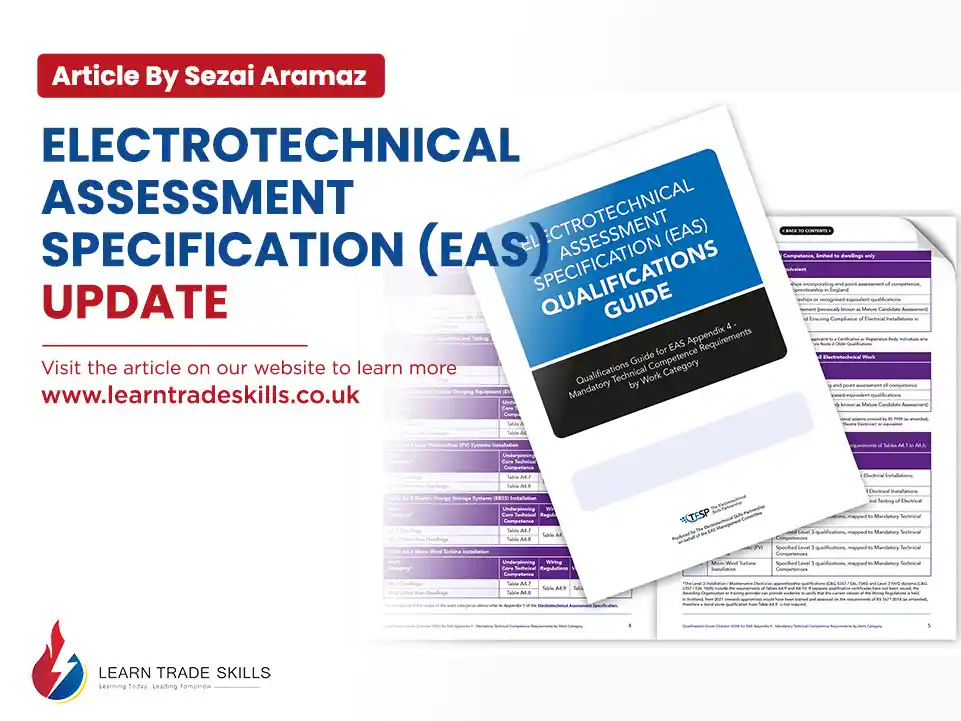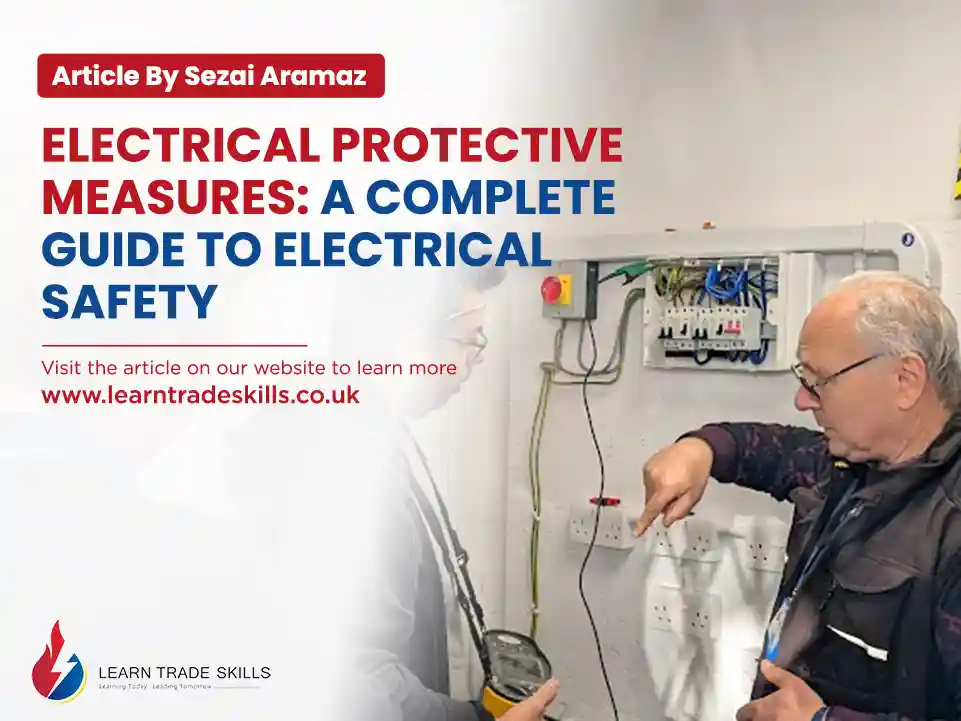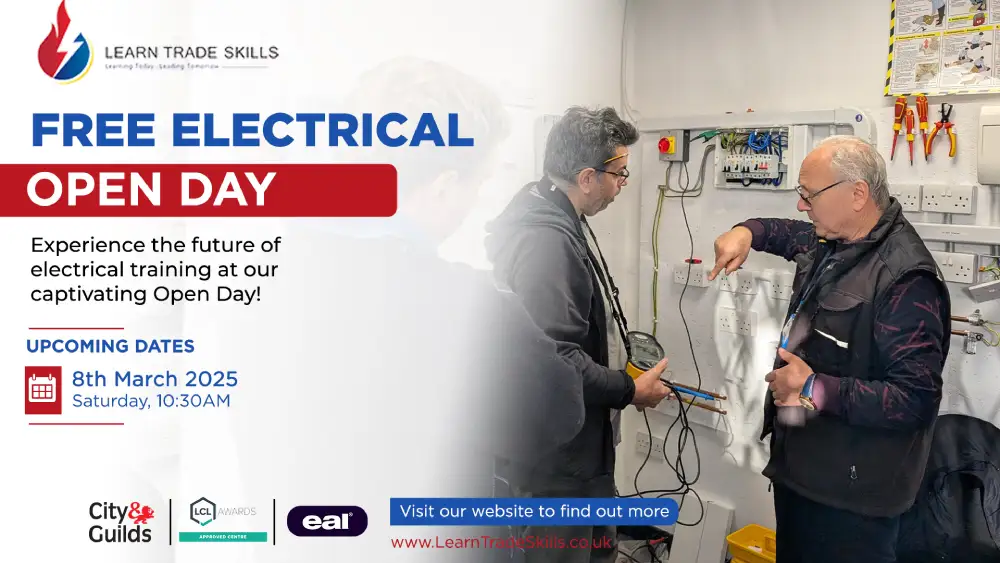

The NVQ Level 3 Electrical Qualification is recognized as the benchmark of competency, knowledge, and experience for practicing electricians in the UK. Unlike a traditional training course, the NVQ is an assessment of your practical skills and theoretical knowledge, which you demonstrate through an Evidence Portfolio.
Achieving this qualification validates your ability to carry out electrical installations to industry standards. It also opens the door to applying for your ECS Gold Card, which is a mark of professionalism and competence in the electrical industry. Holding an ECS Gold Card can significantly enhance your career prospects by increasing your credibility and opening up more job opportunities.
There are several routes to achieving your NVQ Level 3, depending on your experience and qualifications. Below is an overview of the main pathways:
The NVQ 2346, also known as the ‘Experienced Worker Assessment,‘ is designed for electricians with at least 5 years of experience and relevant technical qualifications. This route allows seasoned professionals to demonstrate their competency without having to go through the full training course.
The NVQ 2357 is tailored for those with less than 5 years of experience who have already completed the 2365 Levels 2 & 3. This route is ideal for those who are newer to the industry but have already gained foundational knowledge through previous qualifications.
The NVQ 2347 is a new qualification launched in November 2023, designed for practicing electricians with a minimum of 3 years of experience. This route is specifically aimed at those wishing to gain a formal qualification as a Domestic Electrician Experienced Worker.
For those entering the industry through an apprenticeship, the NVQ 5357 is the designated route. This qualification is part of the apprenticeship framework and is designed to provide learners with the necessary skills and experience to work competently in the Electrotechnical industry.
The NVQ Level 3 qualification involves compiling an Evidence Portfolio that demonstrates your knowledge and competence in all relevant areas. This portfolio typically includes:
The final step in achieving your NVQ Level 3 qualification is the AM2 Practical Assessment. This rigorous test evaluates your ability to perform a series of common occupational tasks under timed conditions. The assessment includes:
The time required to complete your NVQ 3 Electrical Qualification can vary widely based on several factors, including which route you take, your previous experience, current employment status, and the amount of time you can dedicate to the work involved. It can take as little as 3-4 months or as long as 2 years. For the 2356 Mature Candidate Assessment route, the average is typically between 6-8 months.
The NVQ 2346-03 is designed for candidates with at least 5 years of experience in the electrical industry and relevant technical qualifications. It is often referred to as the “Level 3 for Experienced Workers” or the “Mature Candidate Assessment.” On the other hand, the NVQ 2357 is intended for those who are new entrants to the industry or have less than 5 years of experience but already hold the C&G 2365 Levels 2 & 3.
Yes, all candidates for the NVQ 2356 & 2357 must take their AM2 Practical Assessment to complete their qualification, regardless of their time and previous experience in the industry. Apprentice candidates on the NVQ 5357 must take the slightly different AM2S Practical Assessment.
The NVQ 3 Electrical courses consist of several units, each containing Performance Objectives and Knowledge Requirements that you must work through. As you progress, you compile a Portfolio to demonstrate your knowledge and competence in all areas. This portfolio may include photographic evidence, written responses, and verbal discussions with your assessor.
To create your portfolio, you must work through each unit and provide evidence that satisfies your assessor regarding your competence in all required areas. The evidence may take various forms, including photographic evidence, witness testimonies, reflective accounts, direct observations, work products, and in-depth probing professional discussions with your assessor.
While completing your NVQ Level 3 Electrical qualification – including the AM2 Practical Assessment – makes you eligible to apply for the ECS Gold Card, you do not receive it automatically. You must also have the latest edition of the Wiring Regulations BS7671:2018, pay a small fee, and sign up for Registered Electrician status as of January 1, 2019.
The Bridging Assessment Exam is a one-and-a-half-hour written exam covering 21 questions. It addresses the knowledge gap between the 2365 Level 2 and Level 3 and the 2357 knowledge units. The exam must be taken under exam conditions, and some training providers offer various locations for taking this exam.
If you completed the 2365 Level 3 (or EAL equivalent) after September 2017, you do not need to take the bridging assessment exam, as the knowledge gap no longer exists for candidates who completed the 2365 after that date.
Earning your NVQ Level 3 Electrical Qualification is a significant milestone in your career as an electrician. Whether you’re an experienced worker or just starting, there’s a route tailored for you. By completing this qualification and passing the AM2 assessment, you’ll not only prove your competence but also gain access to greater job opportunities with the ECS Gold Card. Invest the time and effort into your training and assessments, and you’ll be well on your way to a successful career in the electrical industry.
Paul has been a dedicated lecturer at Learn Trade Skills since 2022, bringing decades of expertise in both lecturing and the electrical industry to his students. With a rich background as an accomplished electrician, Paul combines practical experience with a deep passion for teaching, ensuring that his students not only grasp theoretical concepts but also gain the hands-on skills necessary for success in the field. Paul's commitment to education and his profession makes him a valued mentor and educator, continually inspiring the next generation of skilled tradespeople



© Copyright Learn Trade Skills 2025
“Lorem ipsum dolor sit amet, consectetur adipiscing elit. Ut pretium tristique purus nec consectetur. Nulla feugiat eget tellus aliquam scelerisque. Sed eget luctus enim, sed mattis enim. Lorem ipsum dolor sit amet, consectetur adipiscing elit. Ut pretium tristique purus nec consectetur. Nulla feugiat eget tellus aliquam scelerisque. Sed eget luctus enim, sed mattis enim.Nulla feugiat eget tellus aliquam scelerisque. Sed eget luctus enim, sed mattis enim. Lorem ipsum dolor sit amet, consectetur adipiscing elit. Ut pretium tristique purus nec consectetur. Nulla feugiat eget tellus aliquam scelerisque. Sed eget luctus enim, sed mattis enim.”
William Goss
Electrician course
11/11/2024